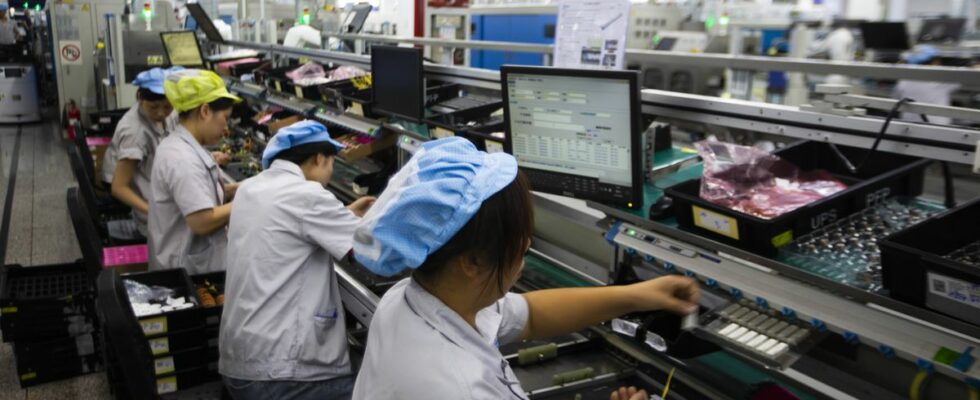Beginning of a new era? The year 2023 should mark the revival of the automotive industry in Hauts-de-France, the only region in France to benefit from the establishment of gigafactories, these factories which must make electric batteries for the cars of the future. 20 minutes make the point.
Three gigafactories that change everything
For three years, good news has followed one another. In September 2020, a PSA/Opel and Total/Saft consortium officially confirmed the establishment of ACC (Automotive Cells Company) in Douvrin, Pas-de-Calais, and Kaiserslautern, Germany. The start of production is scheduled for the second half of 2023. It should reach full power by 2030, to equip 1 million electric vehicles per year, i.e. more than 10% of the potential European market.
The following year, in 2021, it was the Chinese company AESC-Envision, supplier of Renault, which made a request to set up, in 2024, an electrical pole in Douai, in the North. Finally, last year, in February, the Grenoble start-up Verkor, supported by Renault, Schneider Electric and Arkema, also announced that it had chosen Dunkirk, in the North, to manufacture low-carbon battery cells from 2025. Construction of the plant on a 150-hectare site is due to begin this year, after a public consultation process.
“It’s a sign that the automotive industry still has a bright future in the region,” says Luc Messient, general delegate of the Regional Association of the Automotive Industry (Aria). Many envy us these huge factories, but we fought for it. There was a lot of preparation and anticipation work. In particular, we went on a mission on the subject in 2016, in Japan. »
A potential of at least 10,000 jobs
The gigas factories that will open in Douvrin, Douai and Dunkirk represent a potential of around 10,000 jobs. “Our ambition is to attract women to these new professions, which will also involve laboratory tasks,” emphasizes Luc Messient. According to Aria, “25 million euros have already been devoted to training and attractiveness for these gigafactories via the call for expressions of interest in skills and professions of the future called Electro”. Mob”.
It is already possible to apply for these industrial maintenance jobs. In Douai, for example, the group of establishments (Greta) has launched certain training courses on battery jobs, in partnership with the Hauts-de-France region. Partnership concretized by the joint visit, Thursday, on the spot, of Laurent Rigaud, vice-president of region in charge of Training and Patrice Le Guyader, director of AESC Envision which oversees the future pole “Electricity” of Renault.
Uncertain future or snowball effect?
In 2005, at the peak of automotive manufacturing in the region, around one million vehicles were produced per year. “In 2022, we are far from it. But, with a production of 700,000 [véhicules], we are up on previous years”, reassures Luc Messient. Nevertheless, the first region of France (approximately a third of the vehicles produced in the country) is experiencing difficulties.
“Some time ago, a lot of fears remained about internal combustion vehicles, because we are the region where the most are manufactured, admits Luc Messient. And the short term is still complicated. Many companies in this sector, which are still suffering, must hold on to be there when the light goes on. »
According to the head of Aria, “there is an interest in concentration, which is why one factory attracts another”. “The ecosystem that is being built around the manufacture of batteries will revitalize the region,” he says. Thus, in October, came the announcement of a possible fourth plant, this time for battery separators. The Japanese company Wscope, associated with the French Alteo, must invest 600 million euros. The precise location, in Hauts-de-France, must be specified within a few months.
Between 2019 and 2021, 17 companies with foreign capital invested in the region compared to 4 with French capital. However, when we talk about dependence, especially on China, Luc Messient wants to be pragmatic: “The know-how is in China. And I prefer Chinese companies that manufacture with our employees. »

